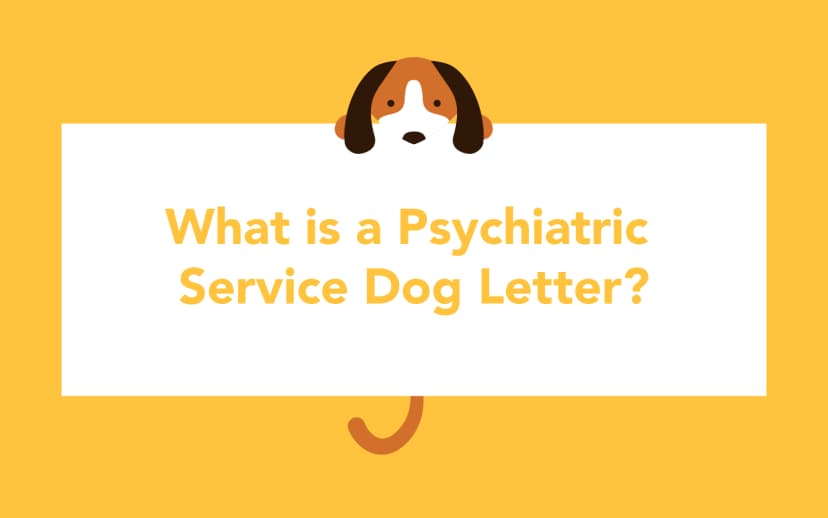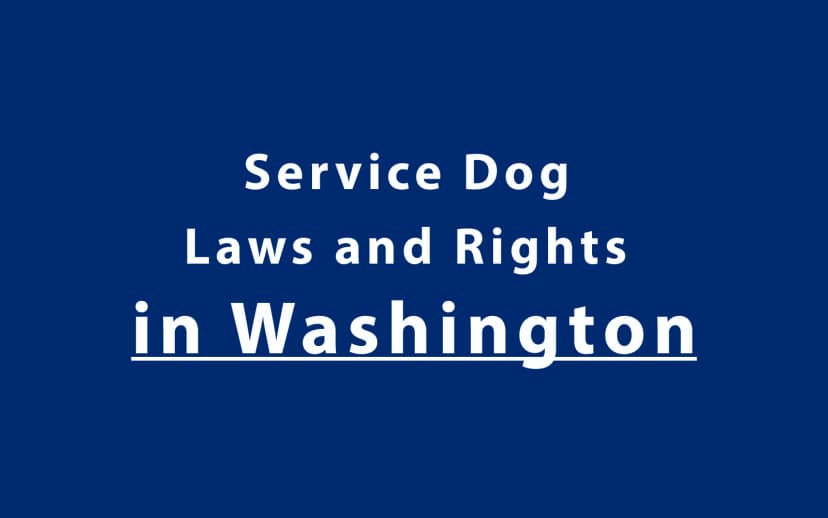Service Dog Laws and Rights in Kentucky

For individuals living with physical, psychiatric, or neurological disabilities, a service dog is not simply a companion—it is a vital partner that performs life-enhancing tasks and provides the freedom to live independently. In Kentucky, understanding the rights and laws that protect service dog users is essential for ensuring access, dignity, and equality. This guide provides an in-depth overview of service dog laws and rights in Kentucky, and how they interact with federal protections.
What Is a Service Dog Under Kentucky Law?
Kentucky recognizes the definition of a service dog in alignment with the Americans with Disabilities Act (ADA). Under KRS § 258.500, a service animal is defined as a dog that is individually trained to do work or perform tasks for a person with a disability. This includes physical tasks (e.g., guiding the blind, alerting the deaf), medical alert and response (e.g., diabetic alerts or seizure response), and psychiatric support (e.g., interrupting panic attacks).
Importantly, emotional support animals (ESAs), comfort animals, and therapy animals are not considered service animals under the ADA or Kentucky law. They do not have the same legal protections in public spaces.
Public Access Rights in Kentucky
Access to Public Places
Under the ADA and Kentucky law, individuals with service dogs are legally allowed to enter all public places where the general public is permitted. This includes:
- Restaurants and cafes
- Retail stores and shopping centers
- Hospitals and clinics
- Public transportation and rideshares
- Hotels and lodging
Service dogs must be under control at all times. This typically means being harnessed, leashed, or tethered, unless such devices interfere with the dog's ability to perform its work.
Responsibilities of the Handler
Handlers are responsible for:
- Keeping the dog under control.
- Ensuring the dog is housebroken and well-behaved.
- Preventing the dog from posing a direct threat or causing a disruption.
Business owners are not permitted to ask for documentation or require the dog to demonstrate its task. They may ask only two questions:
- Is the dog a service animal required due to a disability?
- What work or task has the dog been trained to perform?
A business can ask a service dog to leave only if it is out of control or not housebroken.
Housing Rights: The Fair Housing Act in Kentucky
Under the Fair Housing Act (FHA), individuals with service dogs are protected from housing discrimination. This applies even to housing that has a "no pets" policy. Landlords and property managers must accommodate service dogs.
- No pet deposits or fees may be charged.
- Breed, size, or weight restrictions do not apply.
- Landlords may request documentation only if the disability or need for the animal is not obvious.
This applies to:
- Rental apartments
- Condominiums
- Public housing
- Dormitories
Employment Rights
The ADA also protects individuals in the workplace through Title I. Employers must provide reasonable accommodations, including the use of a service dog, unless doing so would impose an undue hardship.
Key Protections:
- The right to request the use of a service dog during work hours.
- Protection against discrimination in hiring based on service dog use.
- Reasonable accommodations tailored to the specific needs of the employee.
It is advisable for employees to engage in an interactive process with their employer to establish accommodations, and may be asked to provide verification of disability and necessity.
Air Travel: Flying With a Service Dog
The Air Carrier Access Act (ACAA) ensures that individuals with service dogs can fly in the cabin with their animals at no additional cost.
Requirements:
- Airlines must accept service dogs, including psychiatric service dogs (PSDs).
- Passengers must submit the DOT Service Animal Air Transportation Form.
- For flights over 8 hours, the Relief Attestation Form may be required.
- Dogs must be well-behaved, under control, and fit within the handler's foot space.
Emotional Support Animals (ESAs) are no longer recognized under ACAA and are treated as pets by airlines.
Education and Public Services
Students with disabilities have the right to be accompanied by a service dog in:
- K-12 public schools
- Colleges and universities
- Vocational schools and other educational facilities
Parents or guardians should work with school officials to develop appropriate accommodations, such as through an Individualized Education Program (IEP) or 504 Plan.
State-run buildings, courthouses, parks, and libraries must allow access to service dogs under the ADA.
Service Dog Training and Certification in Kentucky
Kentucky law does not require formal certification or registration for service dogs. Dogs can be trained by their owner or a professional trainer, as long as they are:
- Task-trained to assist with a disability.
- Well-behaved in public and housebroken.
- Under control of the handler at all times.
There is no official registry or license in Kentucky for service dogs. However, many handlers choose to carry ID cards, wear vests, or use service dog tags to reduce public inquiries. These are not legally required, but can be helpful tools.
Fraudulent Representation and Penalties
Misrepresenting a pet as a service dog is a misdemeanor in Kentucky and is subject to penalties.
Under KRS § 258.991, knowingly providing false documentation or claiming a non-service dog as a service dog can result in:
- Fines
- Possible community service
- Criminal charges
These laws help protect legitimate service dog users and preserve public trust in service animals.
FAQs: Quick Answers to Common Questions
Q: Can I train my own service dog in Kentucky? Yes. The ADA allows individuals to self-train their service dogs.
Q: Can businesses ask for proof or certification? No. Under the ADA, businesses can only ask two specific questions if the need is not obvious.
Q: Are psychiatric service dogs protected under the law? Yes. They are considered service dogs as long as they are task-trained.
Q: Can a landlord charge a deposit for a service dog? No. Service dogs are not pets and are exempt from pet fees and deposits.
Resources for Kentuckians with Service Dogs
- Kentucky Commission on Human Rights
- Disability Rights Kentucky (https://www.drcky.org)
- ADA National Network (https://adata.org)
- U.S. Department of Housing and Urban Development (https://www.hud.gov)
- Department of Transportation (https://www.transportation.gov)
Conclusion: Navigating Kentucky with Your Service Dog
Kentucky upholds the rights of individuals with disabilities through robust federal and state protections for service dog access. Whether you are navigating public spaces, flying, attending school, or renting a home, understanding your rights allows you to advocate for yourself and your service animal confidently. While no ID or registration is required by law, preparation, education, and respectful advocacy will ensure you and your service dog are treated with the dignity you deserve.
For additional support, visit www.AssistanceDogPartners.org to access resources, registration tools, and service dog ID options tailored for Kentuckians.



